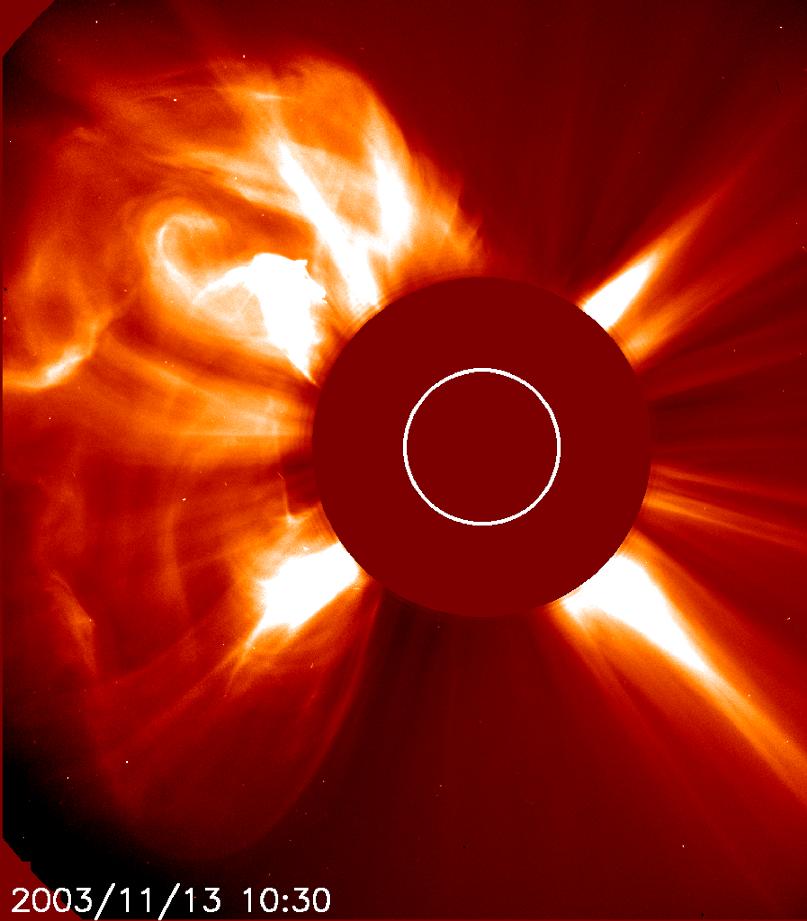Q: Can I take this program for partial credit, e.g. just Electromagnetism? A: The material in this program is very tightly integrated, so if you wanted to just take E&M, it would fall on different days and different times from week to week. That is likely to be difficult to coordinate with any other academic program. Q: How many upper division credits can I get? A: Students who consistently do good quality work, on time, both quarters, can get a total of 32 UD credits. Upper division credit is available only to students who do both quarters. Q: How does this progam fit in with the rest of the physics curriculum? A: This program is comparable to Physical Systems, not quite as intense, and with a unifying theme of Astrophysics. Prerequisite: a full year of calculus-based physics, such as M&M. Next year we are offering Energy Systems, which complements both Physical Systems and Physics of Astronomy. Q: Will this program prepare me for the Physics GREs? A: This is the best program available at Evergreen for Physics GRE prep until 2005-2006. We will work with over half the topics on the physics GRE, to a greater or lesser extent. See the syllabus for details. Let's discuss as a group how we can work together to help you prepare for GRE - if you would like to make GRE prep problems part of homework, that would be one option. Q: Where and when do we meet on the first day? A: Monday 5.Jan.2004 at 1:00 in the Physics Homeroom: Lab II Rm 2242
Q: What books do we need for the first day of class? A: All of them, so come with money to buy books. They will be expensive, totaling several hundred dollars, and you will use them all year (and perhaps the rest of your life). Do not count on financial aid to be available! Experience has shown that students who are unable to buy required texts during the first week have a very difficult time catching up. Q: What should I read to prepare for class? No pre-reading is required, but the quarter will be easier if you either get a head start on the seminar readings. You might also want to review your familiar old physics and calculus textbooks. Q: Can I get out of seminar? A: Who would want to do that? Book seminar (Monday 5-7) is our main place to learn about relativity, and journal seminar (Thus. 5-7) is our main place to learn about the latest developments in physics and astronomy. Q: Why aren't the texts in the bookstore? A: The bookstore has had difficulty getting the right texts in on time in the past, and marks the price up. While there may be a few copies available in the bookstore, you can get them on time and at a lower price at Orca Books downtown, or online - do be sure to order by the first week of December. Q: Will it be fun? Will it be a lot of work? You bet, on both counts! You will learn some of the most beautiful and powerful thinking and problem-solving methods known to humans. It will take about 50 hours per week including in-class time. Details available at the first class. Q: Will you cover the special topic I'm interested in? A: Yes - we can learn about it together, via your research project. Q: Do I need a calculator? A: You might get by without one, but you do need an Evergreen email account. Every registered student gets one automatically. Please learn to use it before class starts - ask the nice folks in the Computer Center or CAL. Q: What special materials should I get? A: Plan to get a good pair of 10x50 binoculars in spring for observing the night sky. (You should be able to get a good pair for $150-300). With a tripod, you can see the moons of Jupiter and some details of nearby clusters and galaxies. |
